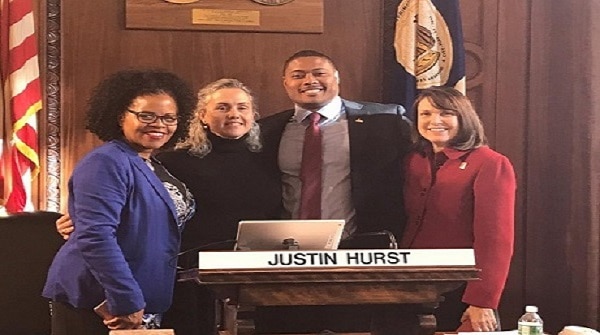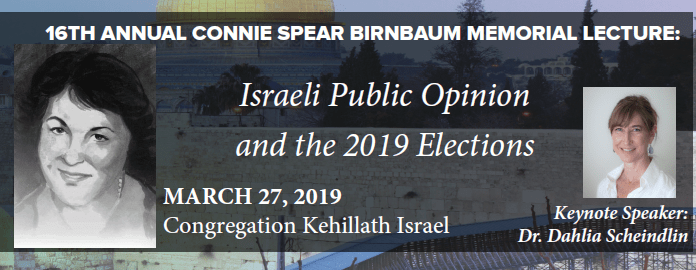The impact of our Israel trips is not easily observed or measured. Sometimes trees fall in the woods, with no one around to hear them. If one of our study tour alumni tells a story to a congregant or a constituent about something they experienced in Israel, we may never hear about it. That is why we were so heartened to read the news out of Springfield earlier this week.
Justin Hurst, the Springfield City Council’s new President, traveled with JCRC to Israel in December as part of our Municipal Leaders Study Tour. The speech he delivered at his swearing-in ceremony was largely inspired by his Israel trip, his appreciation of the complexity he encountered, and its connection to his work in Massachusetts.
Register for our 16th Annual Birnbaum Lecture: Israeli Public Opinion and the 2019 Elections

One of our study tour visits is particularly relevant here. Toward the end of our trip, we met with Dr. Thabet Abu Ras, co-director of the Abraham Initiatives (featured as part of our Boston Partners for Peace program). Thabet spoke to us about many of Abraham Initiatives’ programs, including their safe communities and equitable policing initiative. The Abraham Initiatives are working from two directions—with the Israeli police and security services and with Arab communities in Israel—to develop better relationships and safer communities. This includes increasing the representation of Israel’s Arab citizens in the police force, various high-level training programs, and other trust-building initiatives.
I wonder whether Justin had that conversation with Thabet in mind when he raised this particular issue during his swearing-in speech. In both Israel and Massachusetts, we witness the often fraught relationship between minority communities and the police. This is a common theme that stretches from Massachusetts to Israel and around the world. In Israel, Justin heard about cutting edge efforts, that are succeeding in ensuring greater representation of minorities on local police forces, and building stronger relationships between law enforcement and the community. Finding common cause with their counterparts in Israel experiences, sharing the challenges they face as municipal leaders, and being inspired by each other’s creative solutions; these are the very sparks we hope to ignite during the study tour experience.
But the new relationships and connections don’t end there. Justin was not the only study tour participant present at his swearing-in. Boston City Councilor Kim Janey, Easthampton Mayor Nicole LaChapelle, and JCRC board member Fredie Kay were all there to support him. Not only did Justin make an individual connection between his role in Springfield and his Israel trip, he made connections with the rest of the group that will lay the ground work for new collaborations in the years to come.
This brief vignette captures everything we hope to achieve on our study tours: complexity and connection. We introduce people to the complexities in Israel—some of which are unique to Israel, while others resonate deeply with participants’ own experiences back home. This creates the opportunity for deep and meaningful connection; we can learn lessons from the Israeli experience that help inform our lives in Massachusetts and can share our own insights with our friends there. I was thrilled to see both complexity and connection at play in Springfield this week.
Shabbat Shalom,
Eli





